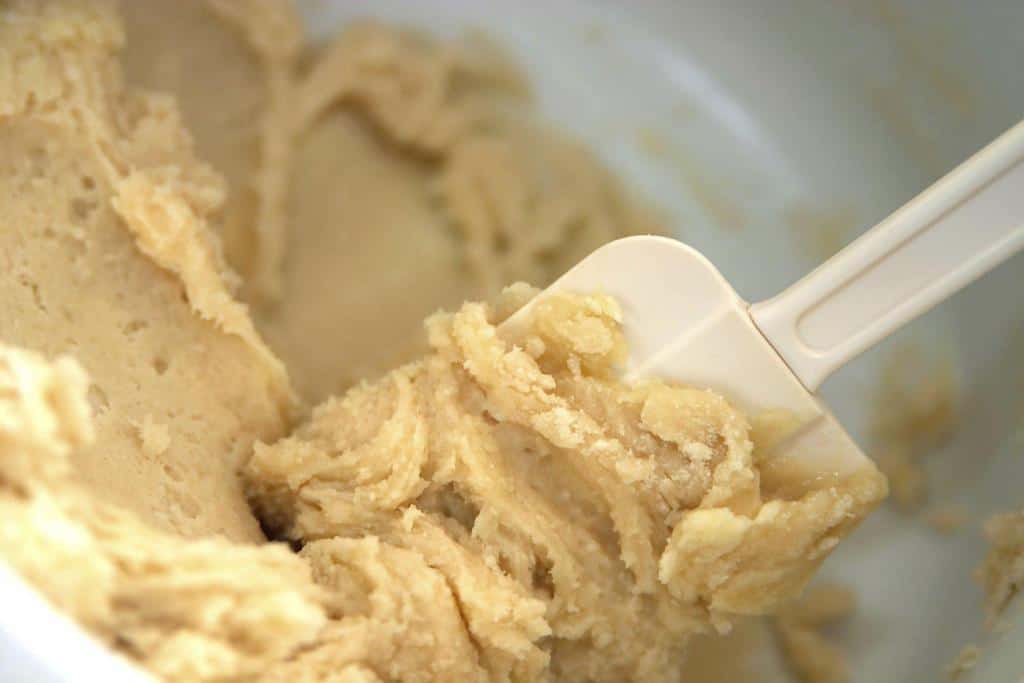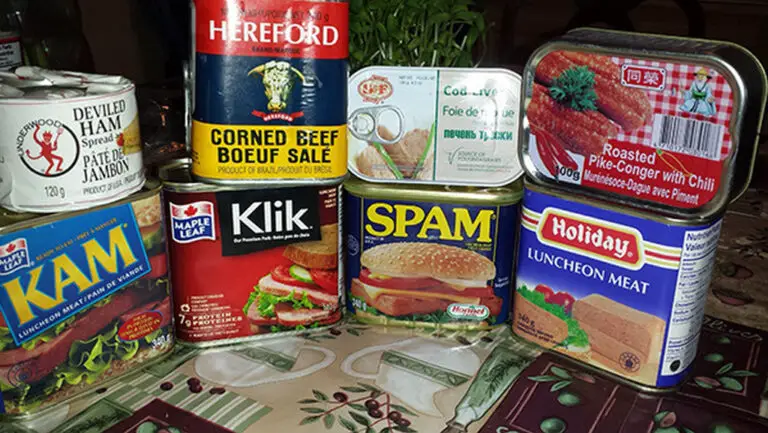Can You Freeze Cookie Dough with Egg in It? Does It Change the Taste?

There’s nothing quite like the smell of freshly baked cookies wafting through the air. But sometimes, you don’t have the time or energy to make a batch from scratch. That’s where freezing cookie dough comes in handy!
You can make a big batch of dough and freeze it for later, so you can have freshly baked cookies anytime you want them. However, if you’re freezing cookie dough with eggs in it, you might be wondering if it will change the taste or texture of your beloved cookies.
In this article, we’ll dive into the science behind freezing cookie dough with eggs and answer the question: can you freeze cookie dough with eggs in it? And if you do, does it change the taste? Let’s find out!
Understanding the Role of Eggs in Cookie Dough
Eggs play a vital role in cookie dough, as they provide structure, moisture, and richness to the dough. When combined with other ingredients, eggs help to bind the dough together, giving it its characteristic texture and structure. They also act as a leavening agent, helping the dough to rise and giving cookies a light and airy texture.
The protein in the egg whites coagulates during baking, helping to give cookies their firm and chewy texture. The fat in the yolks contributes to the richness and tenderness of the dough, making it soft and moist. The eggs also add moisture to the dough, preventing it from becoming too dry or crumbly.
When it comes to freezing cookie dough with eggs, there are a few things to keep in mind.
- First, it’s important to use fresh eggs that have been properly stored in the refrigerator. Old or expired eggs can affect the quality and texture of the dough.
- Second, it’s important to mix the eggs well with the other ingredients to ensure that they are evenly distributed throughout the dough. This will help to ensure that the dough freezes and thaws evenly, without any hard or icy spots.
- Finally, it’s important to note that the freezing and thawing process can affect the texture and flavor of the eggs in the dough. While the protein in the eggs can help to stabilize the dough during freezing, it can also cause the dough to become more dense or tough. Similarly, the fat in the eggs can become rancid during freezing, affecting the flavor of the dough.
Can You Freeze Cookie Dough with Egg in It?
If you’re planning to freeze cookie dough, one of the common questions that may arise is whether you can freeze cookie dough that contains egg. The answer is yes, you can freeze cookie dough with eggs in it, but there are a few important considerations to keep in mind.
When eggs are frozen, the water in the egg expands and can cause the egg to break down and separate from the rest of the dough. This can result in changes to the texture and taste of the cookie dough.
To freeze cookie dough with eggs in it, it is recommended to use a recipe that has a higher ratio of sugar and fat to eggs. This is because sugar and fat act as stabilizers and can help prevent the eggs from breaking down during the freezing process. Additionally, using fresher eggs can help to minimize the risk of separation when freezing.
When freezing cookie dough with eggs in it, you need to wrap it tightly in plastic wrap or place it in an airtight container to prevent freezer burn and exposure to air, which can lead to a change in taste and texture. It is also recommended to label the container with the date of freezing and the type of dough to ensure that it is used within a reasonable amount of time.
Does Freeze Cookie Dough with Egg Change the Taste
One of the biggest concerns when it comes to freezing cookie dough with eggs is whether or not it will affect the taste. After all, nobody wants to spend time making cookie dough only to find out that it tastes different after being frozen and thawed.
The good news is that, in most cases when adding eggs, freezing cookie dough does not significantly change the taste. Eggs are an important ingredient in cookie dough, as they help to bind the ingredients together, add structure, and create a tender texture. However, when eggs are frozen and then thawed, they can sometimes break down and lose some of their binding power.
This can result in cookies that are slightly flatter or more crumbly than if the dough was made fresh. However, these changes are usually minor and won’t be noticeable to most people. In fact, some people even prefer the texture of cookies made from frozen dough, as they can be slightly denser and chewier than fresh dough.
Should Eggs Be Cold for Cookie Dough?
In general, it is recommended to use room temperature eggs for cookie dough because they blend more easily with the other ingredients, resulting in a smoother batter and better texture.
When eggs are cold, they tend to clump together and can be more difficult to incorporate into the batter. This can result in lumpy or uneven dough, which can affect the overall texture of the cookies. Room-temperature eggs, on the other hand, blend more easily with the other ingredients, resulting in a smoother batter and more uniform cookies.
Using room-temperature eggs can also help the dough rise more easily during baking. When eggs are cold, they can cause the butter or other fats in the dough to solidify, which can make it more difficult for the dough to rise properly. Room temperature eggs, on the other hand, help to keep the dough at a consistent temperature, which can promote better rising and baking.
To bring eggs to room temperature, simply take them out of the refrigerator 30 minutes to an hour before you plan to use them. If you’re in a hurry, you can also place the eggs in a bowl of warm water for a few minutes to bring them to room temperature more quickly.
How To Ensure the Safety of Frozen Cookie Dough With Eggs
When it comes to freezing cookie dough with eggs, it’s important to take certain precautions to ensure the safety of the dough. Raw eggs might have harmful bacteria, like salmonella, that can make you sick if you don’t handle them right.
One important step is to use pasteurized eggs, which have been treated to kill any harmful bacteria. Pasteurized eggs can be used in the same way as regular eggs in cookie dough recipes and can provide added peace of mind when freezing the dough.
Another important step is to make sure that the dough is fully cooked before consuming it. This means baking the dough at the appropriate temperature for the appropriate amount of time, as specified in the recipe. It’s not safe to eat raw cookie dough that contains eggs, as it can increase the risk of foodborne illness.
It’s also important to follow safe food handling practices when preparing and storing the dough. This includes washing your hands before and after handling the dough, using clean utensils and equipment, and storing cookie dough in a sealed container in the freezer.
When thawing frozen cookie dough with eggs, it’s important to do so in the refrigerator or microwave rather than at room temperature. This will help to prevent the growth of harmful bacteria and ensure the safety of the dough.
Thawing and Baking Frozen Cookie Dough With Eggs
Thawing and baking frozen cookie dough with eggs can be a convenient way to enjoy freshly baked cookies without having to mix up a batch of dough from scratch. However, it’s important to thaw and bake cookie dough properly to ensure that the cookies turn out just as delicious as if they were baked from fresh dough.
When thawing frozen cookie dough with eggs, do so slowly and gently to prevent any damage to the dough. The best way to thaw frozen cookie dough is to transfer it from the freezer to the refrigerator and let it thaw overnight. This will allow the dough to thaw evenly and at a safe temperature, reducing the risk of harmful bacteria growth.
If you’re short on time and need to thaw the dough quickly, you can do so in the microwave. Simply remove the dough from the freezer and place it in the microwave on the defrost setting for a few minutes. Be sure to monitor the dough closely to avoid over-thawing or cooking it.
Once the dough is thawed, preheat your oven to the appropriate temperature as specified in the recipe. If the recipe calls for a certain type of baking sheet or parchment paper, be sure to use those as well to ensure even baking.
When baking the cookies, keep a close eye on them to ensure that they don’t over-bake or under-bake. Every oven is different, so it’s a good idea to check the cookies a few minutes before the recommended baking time to see if they’re done.
Tips for Achieving the Best Results When Freezing Cookie Dough With Eggs
Freezing cookie dough with eggs can be a great way to save time and have fresh, homemade cookies on hand whenever you want them. However, there are certain tips and techniques you can use to ensure that the frozen dough turns out just as delicious as if it were made from scratch.
1. Portion the Dough
One key tip is to portion the dough into individual cookies before freezing it. This allows you to bake only as many cookies as you need at a time without having to thaw the entire batch. It also helps the dough freeze more quickly and evenly, reducing the risk of ice crystals forming and affecting the texture of the dough.
2. Freeze Immediately
When you mix the ingredients together to make cookie dough, you’re creating a delicate balance of flavors and textures. The flour, sugar, butter, and eggs all work together to create a dough that’s easy to shape and bake into delicious cookies. But if the dough is left at room temperature for too long, the ingredients can start to break down, which can result in a less-than-perfect cookie.
By freezing the dough as soon as possible after making it, you can help to minimize any breakdown of the ingredients. Freezing the dough quickly locks in the flavor and texture, so when you’re ready to bake the cookies, they’ll taste just as fresh and delicious as if you had made them from scratch.
3. Thaw Slowly
When it comes to thawing the frozen dough, it’s important to do so slowly and at a safe temperature to prevent harmful bacteria growth. The best way to thaw frozen cookie dough with eggs is to transfer it from the freezer to the refrigerator and let it thaw overnight. If you’re in a hurry, you can also thaw the dough in the microwave on the defrost setting, but be sure to monitor it closely to avoid over-thawing or cooking it.
4. Check The Temperature
Finally, it’s important to bake the thawed cookie dough at the appropriate temperature for the recommended amount of time to ensure that the cookies turn out just as delicious as if they were made from fresh dough. Every oven is different, so it’s a good idea to check the cookies a few minutes before the recommended baking time to see if they’re done.
5. Wrap Dough Tightly
Another tip is to wrap the dough tightly in plastic wrap or aluminum foil to prevent air from getting in and causing freezer burn. You can also place the wrapped dough in a freezer-safe resealable bag or container for added protection.
6. Labelling
Labeling the frozen dough with the date and type of dough is also helpful for keeping track of what’s in your freezer and how long it’s been there. This can help you use the oldest dough first and prevent any waste.






